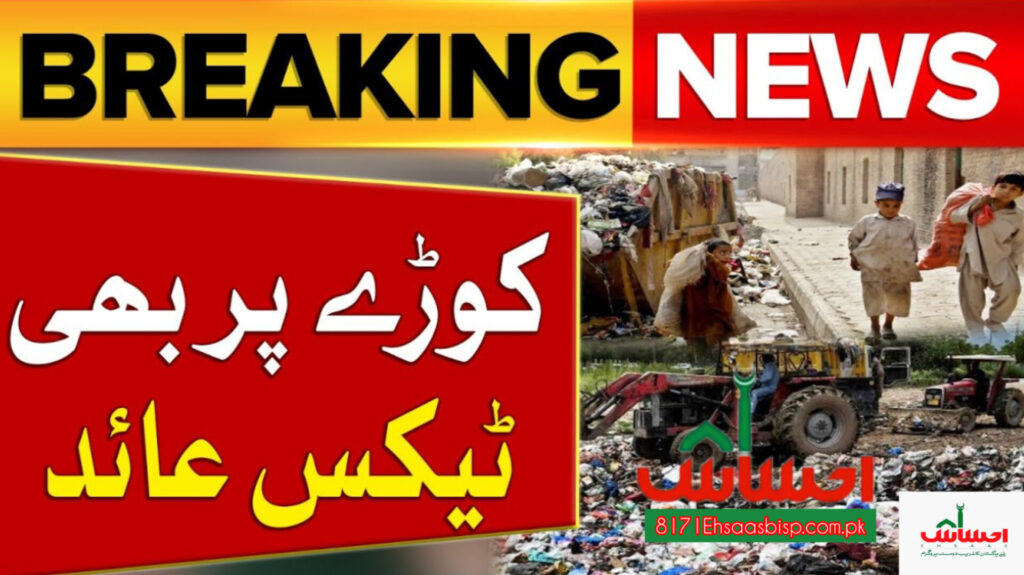
The Punjab government has rolled out a groundbreaking initiative by introducing a garbage tax aimed at fostering cleaner communities. This new regulation is part of a comprehensive strategy to enhance waste management practices throughout the province. By implementing this tax, the government seeks to ensure proper collection, processing, and disposal of waste, thereby reducing pollution and creating a healthier environment for residents. This detailed overview delves into the intricacies of the garbage tax, its anticipated impact, implementation strategies, and frequently asked questions to help citizens understand and adhere to the new regulation.
Background and Rationale
Punjab, like many regions, grapples with significant waste management challenges. Rapid urbanization, population growth, and increased consumption have resulted in larger volumes of waste, straining the existing waste management infrastructure. Improper waste disposal has led to environmental degradation, health hazards, and a decline in quality of life. Recognizing these issues, the Punjab government has introduced the garbage tax as a proactive measure to tackle the waste management crisis head-on.
Objectives of the Garbage Tax for Cleaner Communities
The primary goals of the garbage tax are:
- Improving Waste Management:
Ensure efficient collection, transportation, and disposal of waste. - Promoting Environmental Sustainability:
Reduce pollution and encourage recycling and composting. - Enhancing Public Health:
Minimize health risks associated with unmanaged waste. - Generating Revenue:
Fund waste management infrastructure and services through tax revenue.

Key Features of the Garbage Tax
The garbage tax is designed to ensure fairness, efficiency, and transparency. Key features include:
- Tax Rate:
Determined based on property type and size. Residential, commercial, and industrial properties have different rates. - Billing Cycle:
Billed annually with an option for quarterly payments to ease financial burden on residents. - Usage-Based Charges:
Larger properties and businesses generating more waste incur higher rates to reflect their impact on the waste management system. - Incentives for Recycling:
Households and businesses that participate in recycling programs may qualify for tax reductions. - Transparency:
Detailed bills with clear explanations of charges and revenue usage provided to all taxpayers.
Implementation Strategy
The successful implementation of the garbage tax involves several critical steps:
Step 1: Public Awareness Campaign
- Information Dissemination:
Launch a comprehensive campaign to inform citizens about the garbage tax, its purpose, and benefits. - Workshops and Seminars:
Conduct workshops and seminars to educate residents and businesses on waste management practices and tax compliance. - Media Outreach:
Utilize various media platforms, including TV, radio, newspapers, and social media, to reach a wide audience.
see also
- Breaking News: How to Apply for the Agriculture Internship Program: A Detailed Guide 2024
- Exclusive Updates: Punjab Government Announces Major Recruitment Drive for 30,000 Teachers 2024
- Breaking News: Sindh Textbook Board Launches Ambitious Tablet Distribution Initiative for Students 2024
- ASF Jobs Apply Before August 25, 2024 – Complete Guide
- Exclusive News: Huawei Train the Trainer Program: A Groundbreaking Initiative for Pakistani Students in 2024
Step 2: Infrastructure Development
- Upgrading Waste Management Systems:
Invest in modern waste collection and processing facilities to handle increased waste volumes efficiently. - Expanding Collection Services:
Ensure regular and reliable waste collection services across both urban and rural areas. - Establishing Recycling Centers:
Set up recycling centers to promote sorting and recycling of waste materials.
Step 3: Monitoring and Enforcement
- Regular Inspections:
Conduct regular inspections to ensure compliance with waste management regulations. - Penalty System:
Implement a penalty system for non-compliance, including fines for illegal dumping and failure to pay the garbage tax. - Feedback Mechanism:
Establish a feedback system for residents to report issues and provide suggestions for improvement.
Expected Impact of the Garbage Tax
The introduction of the garbage tax is expected to yield several positive outcomes:
- Cleaner Communities:
Enhanced waste management will lead to cleaner streets, parks, and public spaces, improving the overall aesthetic appeal of communities. - Environmental Benefits:
Reduced pollution and increased recycling rates will contribute to environmental sustainability. - Public Health:
Proper waste disposal will mitigate health risks associated with unmanaged waste, such as waterborne diseases and respiratory issues. - Economic Opportunities:
Investment in waste management infrastructure and services will create jobs and stimulate economic growth.
FAQs about the Garbage Tax
Q1: What is the purpose of the garbage tax?
The garbage tax aims to improve waste management practices, promote environmental sustainability, enhance public health, and generate revenue to fund waste management infrastructure and services.
Q2: How is the garbage tax rate determined?
The rate is based on the type and size of the property. Residential, commercial, and industrial properties have different rates, with larger properties and businesses generating more waste incurring higher charges.
Q3: When is the garbage tax billed?
The tax is billed annually, with an option for quarterly payments to make it easier for residents to manage the financial burden.
Q4: Are there any incentives for recycling?
Yes, households and businesses that actively participate in recycling programs may qualify for tax reductions, encouraging sustainable waste management practices.
Q5: How will the revenue from the garbage tax be used?
Revenue will fund waste management infrastructure and services, including waste collection, transportation, processing facilities, and recycling centers.
Q6: What happens if I do not pay the garbage tax?
Failure to pay may result in penalties, including fines and legal action. Regular inspections and enforcement measures will ensure compliance.
Q7: How can I report issues or provide feedback about waste management services?
Residents can report issues or provide feedback through a designated feedback mechanism, such as a hotline, email, or online portal established by local authorities.
Q8: Will the garbage tax be the same for all areas of Punjab?
Rates may vary based on the specific needs and waste management requirements of different areas. Local governments have the flexibility to adjust rates accordingly.
Q9: How will the tax ensure transparency in its implementation?
Detailed bills with clear explanations of charges and revenue usage will be provided to all taxpayers. Regular audits and public disclosures will ensure transparency.
Q10: What measures are in place to prevent illegal dumping?
The government will implement strict monitoring and enforcement measures, including regular inspections and penalties for illegal dumping, to ensure proper waste disposal.
Conclusion
The introduction of the garbage tax by the Punjab government signifies a pivotal step towards creating cleaner, healthier, and more sustainable communities. By addressing waste management challenges through a structured and transparent tax system, the government aims to ensure that residents benefit from improved environmental conditions and public health. Continued public engagement, compliance, and support will be crucial in achieving the program’s objectives and fostering a culture of environmental responsibility across Punjab.
